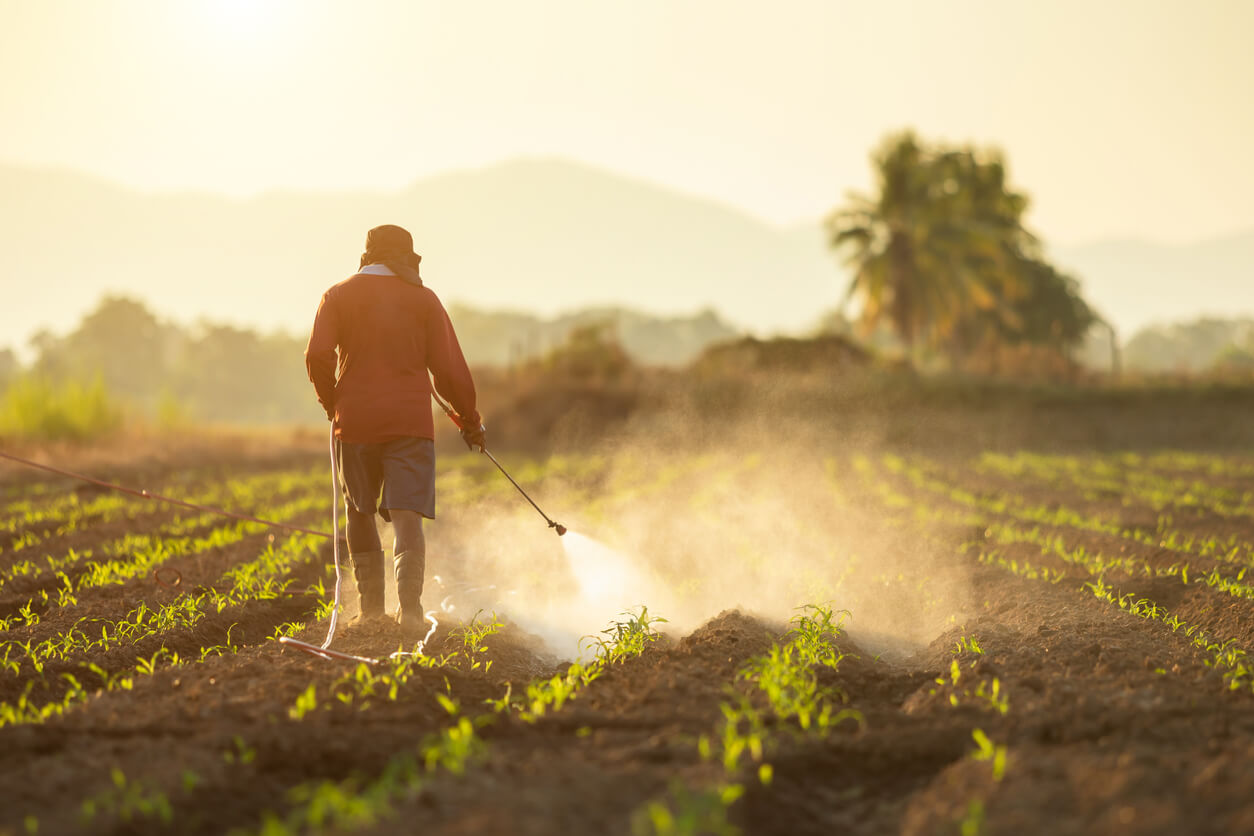Paraquat Lawsuits Filed Over Link to Parkinson’s Disease
Editors carefully fact-check all Drugwatch.com content for accuracy and quality.
Drugwatch.com has a stringent fact-checking process. It starts with our strict sourcing guidelines.
We only gather information from credible sources. This includes peer-reviewed medical journals, reputable media outlets, government reports, court records and interviews with qualified experts.

The popular herbicide paraquat has been used on crops in the United States since the 1960s, but lawsuits say exposure to the toxic chemical can cause Parkinson’s disease in farmers and other agricultural workers.
It’s a popular herbicide because it effectively clears fields of unwanted weeds and grasses, but paraquat is known to be highly toxic. Ingesting paraquat can cause acute multiple organ failure that can be fatal.
In fact, according to the U.S. Environmental Protection Agency, “one sip can kill.”
More than 32 countries have banned the herbicide, including the European Union, according to Parkinson’s News Today. While the U.S. Environmental Protection Agency hasn’t banned the chemical, its use is restricted to licensed, trained applicators.
Now several manufacturers face lawsuits filed by people who claim exposure to paraquat led them to develop Parkinson’s and lawyers across the country are accepting cases.
Missouri-based lawyer Steve Tillery claims he obtained internal documents that show Syngenta — manufacturer of the paraquat product Gramoxone — could have made its formula safer, The Guardian reported in March 2021. These documents also show Syngenta knew about the Parkinson’s risk but covered it up, Tillery told The Guardian.
Syngenta said the paraquat lawsuits were “without merit” in its 2020 financial report.
The manufacturer intends to defend against the lawsuits.
Lawsuits: Manufacturers Failed to Warn of Parkinson’s Risk
Lawsuits say manufacturers failed to warn the public that paraquat could cause Parkinson’s and that their products are defective in design, among other claims.
James Hemker filed a lawsuit against paraquat manufacturers Syngenta and Chevron in February 2021. Paraquat had no warnings that exposure could lead to neurological damage, according to the complaint.
The lawsuit claimed Hemker helped his father and brother farm alfalfa, corn, soybeans and wheat in the 1960s and was exposed to paraquat until the late 1970s or 1980.
Hemker was “repeatedly exposed to and inhaled, ingested, and absorbed paraquat while he was mixing, loading, and spraying Defendants’ paraquat products and while he was in fields after they were sprayed,” according to the complaint.
Doctors diagnosed Hemker with Parkinson’s disease in 2008.
According to the complaint, he did not or could not have known that wearing gloves, a mask, or other personal protective equipment might have prevented or reduced his risk of Parkinson’s.
Paraquat and Parkinson’s Disease
The chemical’s toxicity isn’t disputed, but its link to Parkinson’s disease is more controversial. Lawsuits cite studies that have shown paraquat’s neurotoxic properties.
A few studies have linked paraquat to Parkinson’s disease. One study found people who used paraquat and another pesticide called maneb had an increased risk of as much as 600 percent of developing Parkinson’s, according to a 2017 letter from Unified Parkinson’s Advocacy Council to the EPA.
The Agricultural Health Study, a large study funded in part by the National Institutes of Health, found an increased risk of developing Parkinson’s in farmers who used paraquat.
But not all scientists and regulatory authorities agree on the link.
In a 2019 memorandum, the EPA reviewed studies connecting paraquat to Parkinson’s. The agency said the evidence was insufficient.
“After comprehensive review of the relevant studies, the Agency concluded that the weight of evidence was insufficient to link paraquat exposure from pesticidal use of US registered products to PD [Parkinson’s disease] in humans,” the agency said.
The paraquat litigation is in the early stages and there have been no settlements or jury verdicts yet. In the meantime, lawyers continue to investigate and file lawsuits on behalf of farmers and other agricultural workers across the country.


